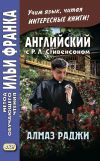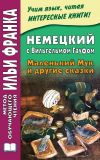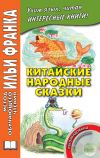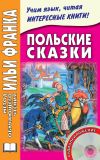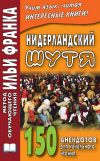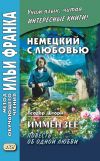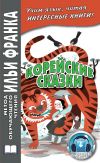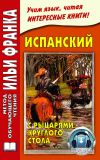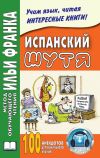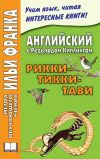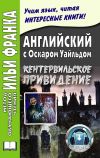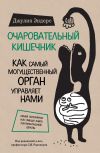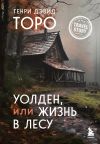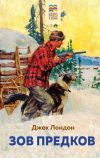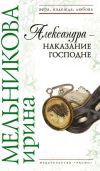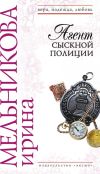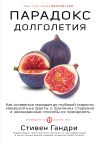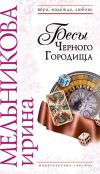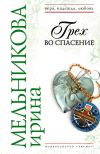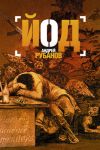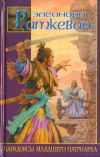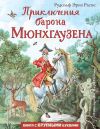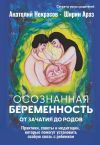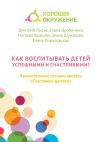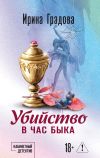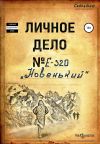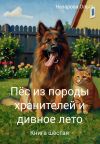
Автор книги: Энтони Хоуп
Жанр: Иностранные языки, Наука и Образование
Возрастные ограничения: 16+
сообщить о неприемлемом содержимом

The nose of a boat protruded beyond the pipe on the other side; and listening intently, I heard a slight shuffle – as of a man shifting his position. Who was the man who guarded Michael’s invention? Was he awake or was he asleep? I felt if my knife were ready, and trod water; as I did so, I found bottom under my feet. The foundations of the Castle extended some fifteen inches, making a ledge; and I stood on it, out of water from my armpits upwards. Then I crouched and peered through the darkness under the pipe, where, curving, it left a space.
There was a man in the boat. A rifle lay by him – I saw the gleam of the barrel. Here was the sentinel! He sat very still. I listened; he breathed heavily, regularly, monotonously. By heaven, he slept! Kneeling on the shelf, I drew forward under the pipe till my face was within two feet of his. He was a big man, I saw. It was Max Holf, the brother of Johann.
My hand stole to my belt, and I drew out my knife (моя рука скользнула к поясу, и я вытащил свой нож; to steal – воровать, красть; делать /что-л./ незаметно, тайком). Of all the deeds of my life, I love the least to think of this (из всех поступков, /совершенных/ мною за всю жизнь, меньше всего мне нравится думать об этом), and whether it were the act of a man or a traitor I will not ask (и я не задаюсь вопросом, действовал ли я по-мужски или по-предательски: «и был ли это поступок мужчины или предателя, я не буду спрашивать»). I said to myself: “It is war – and the King’s life is the stake (я сказал себе: «это – война, а ставка в ней – жизнь короля»).” And I raised myself from beneath the pipe and stood up by the boat (я вылез: «поднялся» из-под трубы и встал у лодки), which lay moored by the ledge (которая была пришвартована к выступу /стены/). Holding my breath, I marked the spot and raised my arm (затаив дыхание, я выбрал место, /куда бить/, и поднял руку; to mark – ставить знак, метку; отмечать /место/; spot – пятно; место, точка). The great fellow stirred (здоровяк пошевелился; great – великий; большой, огромный; fellow – товарищ; человек, парень). He opened his eyes – wide, wider (он открыл глаза, шире, еще шире). He grasped in terror at my face and clutched at his rifle (в ужасе он попытался ухватить меня за голову: «за лицо» и схватился за ружье; to grasp – хвататься /за что-л./; делать попытку схватить /что-л./). I struck home (я ударил точно; to strike home – попасть в цель). And I heard the chorus of a love-song from the opposite bank (а с противоположного берега послышался припев какой-то песенки про любовь; chorus – хор; припев, рефрен).
Leaving him where he lay, a huddled mass, I turned to “Jacob’s Ladder” (оставив его там лежать бесформенной грудой, я повернулся к «лестнице Иакова»; to huddle – сваливать в кучу). My time was short (у меня было мало времени; time is short – время не терпит; short – короткий, краткий). This fellow’s turn of watching might be over directly, and relief would come (может быть, время дежурства этого парня скоро закончится, и придет /новая/ смена; directly – прямо, непосредственно; тотчас, вскоре; relief – облегчение; смена /караульных/).

My hand stole to my belt, and I drew out my knife. Of all the deeds of my life, I love the least to think of this, and whether it were the act of a man or a traitor I will not ask. I said to myself: “It is war – and the King’s life is the stake.” And I raised myself from beneath the pipe and stood up by the boat, which lay moored by the ledge. Holding my breath, I marked the spot and raised my arm. The great fellow stirred. He opened his eyes – wide, wider. He grasped in terror at my face and clutched at his rifle. I struck home. And I heard the chorus of a love-song from the opposite bank.
Leaving him where he lay, a huddled mass, I turned to “Jacob’s Ladder.” My time was short. This fellow’s turn of watching might be over directly, and relief would come.
Leaning over the pipe, I examined it (перегнувшись через трубу, я обследовал ее), from the end near the water to the topmost extremity where it passed (от конца возле воды до верхнего края, где она проходила), or seemed to pass, through the masonry of the wall (или казалось, что проходила, сквозь каменную стену; masonry – каменная кладка). There was no break in it, no chink (в ней не было ни щели, ни трещинки). Dropping on my knees, I tested the under side (опустившись на колени, я проверил нижнюю часть). And my breath went quick and fast, for on this lower side (и мое дыхание участилось, потому что на этой нижней стороне), where the pipe should have clung close to the masonry, there was a gleam of light (там, где труба должна была плотно прилегать к кладке, был проблеск света)! That light must come from the cell of the King (этот свет, должно быть, шел из темницы короля)! I set my shoulder against the pipe and exerted my strength (я уперся плечами в трубу и приложил /все/ свои силы; to exert – напрягать /силы/). The chink widened a very, very little, and hastily I desisted (щель расширилась на самую малость, и я тут же прекратил; hastily – поспешно, торопливо); I had done enough to show that the pipe was not fixed in the masonry at the lower side (я сделал достаточно, чтобы понять, что нижняя сторона трубы не вмурована в кладку; to show – показывать; выявлять, устанавливать; to fix – укреплять, фиксировать).
Then I heard a voice – a harsh, grating voice (потом я услышал голос – резкий, противный голос; harsh – грубый; резкий; grating – скрипучий, резкий; раздражающий):
“Well, sire, if you have had enough of my society (ну, сир, если вы устали от моего общества: «если вам было достаточно моего общества»), I will leave you to repose (я позволю вам отдохнуть); but I must fasten the little ornaments first (но сперва я должен застегнуть эти маленькие украшения).”

Leaning over the pipe, I examined it, from the end near the water to the topmost extremity where it passed, or seemed to pass, through the masonry of the wall. There was no break in it, no chink. Dropping on my knees, I tested the under side. And my breath went quick and fast, for on this lower side, where the pipe should have clung close to the masonry, there was a gleam of light! That light must come from the cell of the King! I set my shoulder against the pipe and exerted my strength. The chink widened a very, very little, and hastily I desisted; I had done enough to show that the pipe was not fixed in the masonry at the lower side.
Then I heard a voice – a harsh, grating voice:
“Well, sire, if you have had enough of my society, I will leave you to repose; but I must fasten the little ornaments first.”
It was Detchard (это был Дэтчард)! I caught the English accent in a moment (я мгновенно: «через мгновение» уловил английский акцент).
“Have you anything to ask, sire, before we part (не хотите чего-нибудь попросить, сир, прежде чем мы расстанемся)?”
The King’s voice followed (послышался: «последовал» голос короля). It was his, though it was faint and hollow (это был его /голос/, хотя слабый и глухой; hollow – пустой, полый; глухой /о звуке/) – different from the merry tones I had heard in the glades of the forest (отличный от /того, с/ веселыми интонациями, /который/ я слышал на поляне в лесу).
“Pray my brother,” said the King, “to kill me (умоляю моего брата убить меня). I am dying by inches here (я здесь медленно умираю; to die by inches – умирать медленной смертью).”
“The duke does not desire your death, sire – yet,” sneered Detchard (герцог не желает вашей смерти, сир – пока что, – насмешливо произнес Дэтчард); “when he does behold your path to heaven (а когда захочет, /тогда/ увидите свою дорогу на небо)!”
The King answered (король ответил):
“So be it (пусть будет так)! And now, if your orders allow it, pray leave me (а теперь, если /данные тебе/ указания это позволяют, прошу, оставь меня).”
“May you dream of paradise!” said the ruffian (пусть вам приснится рай! – сказал негодяй).
The light disappeared (свет пропал). I heard the bolts of the door run home (я услышал, как закрылись дверные засовы; home – домой; на прежнее место, в прежнее положение). And then I heard the sobs of the King (а потом я услышал рыдания короля). He was alone, as he thought (как он полагал, он был один). Who dares mock at him (кто осмелится смеяться над ним)?

It was Detchard! I caught the English accent in a moment.
“Have you anything to ask, sire, before we part?”
The King’s voice followed. It was his, though it was faint and hollow – different from the merry tones I had heard in the glades of the forest.
“Pray my brother,” said the King, “to kill me. I am dying by inches here.”
“The duke does not desire your death, sire – yet,” sneered Detchard; “when he does behold your path to heaven!”
The King answered:
“So be it! And now, if your orders allow it, pray leave me.”
“May you dream of paradise!” said the ruffian.
The light disappeared. I heard the bolts of the door run home. And then I heard the sobs of the King. He was alone, as he thought. Who dares mock at him?
I did not venture to speak to him (я побоялся: «не решился» заговорить с ним). The risk of some exclamation escaping him in surprise was too great (риск, что у него от удивления вырвется какой-нибудь возглас, был слишком велик). I dared do nothing that night (я не посмел ничего /больше/ предпринять той ночью); and my task now was to get myself away in safety (моей задачей теперь было самому убраться /оттуда/ невредимым; safety – безопасность; невредимость, сохранность), and to carry off the carcass of the dead man (и захватить с собой тело Макса; to carry off – уносить, увозить; carcass – туша; тело, труп). To leave him there would tell too much (оставить его там означало выдать себя: «рассказать слишком много»). Casting loose the boat, I got in (отвязав лодку, я забрался в нее; to cast loose – пустить по течению). The wind was blowing a gale now, and there was little danger of oars being heard (ветер дул сильными порывами, и риска, что будет слышен /плеск/ весел, почти не было; gale – шторм, буря). I rowed swiftly round to where my friends waited (я быстро греб обратно к /тому месту/, где меня ждали друзья; round – вокруг; обратно). I had just reached the spot (я почти добрался до этого места; spot – пятно, пятнышко; место), when a loud whistle sounded over the moat behind me (когда громкий свист раздался позади меня /и разнесся/ над рвом).
“Hullo, Max!” I heard shouted (эй, Макс! – я услышал, как крикнул /чей-то голос/).
I hailed Sapt in a low tone (я тихонько окликнул Сэпта). The rope came down (спустилась веревка). I tied it round the corpse, and then went up it myself (я обвязал ее вокруг трупа, потом поднялся по ней сам).
“Whistle you too,” I whispered, “for our men, and haul in the line (вы тоже свистите, – прошептал я, – нашим людям и тащите веревку). No talk now (все разговоры потом: «никаких разговоров сейчас»).”

I did not venture to speak to him. The risk of some exclamation escaping him in surprise was too great. I dared do nothing that night; and my task now was to get myself away in safety, and to carry off the carcass of the dead man. To leave him there would tell too much. Casting loose the boat, I got in. The wind was blowing a gale now, and there was little danger of oars being heard. I rowed swiftly round to where my friends waited. I had just reached the spot, when a loud whistle sounded over the moat behind me.
“Hullo, Max!” I heard shouted.
I hailed Sapt in a low tone. The rope came down. I tied it round the corpse, and then went up it myself.
“Whistle you too,” I whispered, “for our men, and haul in the line. No talk now.”
They hauled up the body (они /стали/ поднимать тело; to haul – тянуть, тащить; up – наверху; наверх; to haul up – поднимать). Just as it reached the road (как только оно достигло дороги), three men on horseback swept round from the front of the Castle (три всадника /понеслись/ от главных ворот замка вокруг /рва/; to sweep – мести, подметать; нестись, мчаться; front – фасад, передняя сторона). We saw them; but, being on foot ourselves, we escaped their notice (мы видели их, но сами будучи пешими, остались незамеченными: «избежали их внимания»). But we heard our men coming up with a shout (но мы услышали, как наши люди подходят, /громко/ крича).
“The devil, but it’s dark!” cried a ringing voice (дьявол, но как /же/ темно! – воскликнул звонкий голос).
It was young Rupert (это был юный Руперт). A moment later, shots rang out (мгновеньем позже раздались выстрелы; to ring). Our people had met them (наши люди повстречались с ними; to meet). I started forward at a run, Sapt and Fritz following me (я бегом бросился вперед, Сэпт с Фрицем последовали за мной).
“Thrust, thrust!” cried Rupert again (коли, коли! – закричал снова Руперт), and a loud groan following told that he himself was not behind-hand (и последовавший за этим громкий стон доказал, что сам он не /стоит/ сложа руки: «с руками позади»).
“I’m done, Rupert!” cried a voice (мне конец, Руперт! – крикнул голос). “They’re three to one (их втрое больше: «их три к одному»). Save yourself (спасайся)!”
I ran on, holding my cudgel in my hand (я продолжал бежать, держа в руке свою дубинку). Suddenly a horse came towards me (вдруг на меня выскочила лошадь). A man was on it, leaning over his shoulder (человек, сидящий на ней, перегнулся через плечо).
“Are you cooked too, Krafstein?” he cried (тебе тоже досталось: «тебя тоже поджарили», Крафштайн? – крикнул он; to cook – готовить пищу; варить, жарить).
There was no answer (ответа не было).
I sprang to the horse’s head (я подскочил к голове лошади). It was Rupert Hentzau (это был Руперт Хенцо).
“At last!” I cried (наконец-то! – крикнул я).

They hauled up the body. Just as it reached the road, three men on horseback swept round from the front of the Castle. We saw them; but, being on foot ourselves, we escaped their notice. But we heard our men coming up with a shout.
“The devil, but it’s dark!” cried a ringing voice.
It was young Rupert. A moment later, shots rang out. Our people had met them. I started forward at a run, Sapt and Fritz following me.
“Thrust, thrust!” cried Rupert again, and a loud groan following told that he himself was not behind-hand.
“I’m done, Rupert!” cried a voice. “They’re three to one. Save yourself!”
I ran on, holding my cudgel in my hand. Suddenly a horse came towards me. A man was on it, leaning over his shoulder.
“Are you cooked too, Krafstein?” he cried.
There was no answer.
I sprang to the horse’s head. It was Rupert Hentzau.
“At last!” I cried.
For we seemed to have him (потому что, казалось, мы взяли его = он попался). He had only his sword in his hand (у него был только меч, /который он держал/ в руке). My men were hot upon him (мои люди преследовали его по пятам; to be hot – преследовать по пятам); Sapt and Fritz were running up (подбегали Сэпт с Фрицем). I had outstripped them (я их опередил); but if they got close enough to fire (но если они приблизятся на достаточное /расстояние/ для выстрела), he must die or surrender (ему придется либо умереть, либо сдаться).
“At last!” I cried.
“It’s the play-actor!” cried he, slashing at my cudgel (а, это лицедей! – воскликнул он, рубанув /мечом/ по моей дубинке). He cut it clean in two (он разрубил ее ровно надвое; clean – /нареч./ полностью; как раз, прямо); and, judging discretion better than death (и, решив, /что/ осторожность лучше, чем смерть), I ducked my head and (I blush to tell it) scampered for my life (я пригнул голову и (мне стыдно об этом рассказывать) бросился наутек; to duck – нырнуть; уклониться от удара; duck – утка; to blush – краснеть, заливаться румянцем; to scamper – бегать, носиться; to flee/run for one’s life – бежать сломя голову). The devil was in Rupert Hentzau (дьявол вселился в Руперта Хенцо); for he put spurs to his horse, and I, turning to look (ибо он дал коню шпоры, и я, обернувшись, чтобы взглянуть), saw him ride, full gallop, to the edge of the moat and leap in (увидел, как он проскакав во весь опор к краю рва, прыгнул в /него/), while the shots of our party fell thick round him like hail (тогда как выстрелы моего отряда ложились: «падали» вокруг него густо, как град). With one gleam of moonlight we should have riddled him with balls (в проблеске лунного света мы изрешетили бы его пулями; ball – шар; пуля, снаряд); but, in the darkness, he won to the corner of the Castle (но в темноте он добрался до угла замка; to win – победить; добраться, достичь), and vanished from our sight (и исчез из нашего поля зрения).

For we seemed to have him. He had only his sword in his hand. My men were hot upon him; Sapt and Fritz were running up. I had outstripped them; but if they got close enough to fire, he must die or surrender.
“At last!” I cried.
“It’s the play-actor!” cried he, slashing at my cudgel. He cut it clean in two; and, judging discretion better than death, I ducked my head and (I blush to tell it) scampered for my life. The devil was in Rupert Hentzau; for he put spurs to his horse, and I, turning to look, saw him ride, full gallop, to the edge of the moat and leap in, while the shots of our party fell thick round him like hail. With one gleam of moonlight we should have riddled him with balls; but, in the darkness, he won to the corner of the Castle, and vanished from our sight.
“The deuce take him!” grinned Sapt (черт его побери! – оскалился Сэпт).
“It’s a pity,” said I, “that he’s a villain (жаль, что он мерзавец). Whom have we got (кого мы взяли)?”
We had Lauengram and Krafstein: they lay dead (мы взяли Лауэнграма и Крафштайна: они лежали мертвые); and, concealment being no longer possible, we flung them, with Max, into the moat (и /поскольку что-либо/ скрывать было теперь бессмысленно: «невозможно», мы сбросили их, вместе с /телом/ Макса, в ров; concealment – сокрытие, утаивание; longer – длиннее, дольше; больше); and, drawing together in a compact body, rode off down the hill (и, собравшись вместе, плотным строем поскакали вниз по холму; to draw together – сближаться, собираться вместе; body – тело; группа людей). And, in our midst, went the bodies of three gallant gentlemen (и среди нас находились тела трех храбрых джентльменов). Thus we travelled home, heavy at heart for the death of our friends (так мы и ехали домой с тяжестью в сердце из-за смерти наших друзей), sore uneasy concerning the King, and cut to the quick (весьма обеспокоенные /положением/ короля и глубоко уязвленные тем; sore – сильно, крайне /устар./; concerning – относительно, касательно; to cut to the quick – задеть за живое) that young Rupert had played yet another winning hand with us (что юный Руперт сыграл с нами еще одну выигрышную /для себя/ партию).
For my own part, I was vexed and angry that I had killed no man in open fight (что до меня лично, то я был раздражен и зол, что не убил никого в открытом бою), but only stabbed a knave in his sleep (а лишь заколол спящего слугу; knave – жулик, мошенник; лакей, прислужник). And I did not love to hear Rupert call me a play-actor (и мне неприятно было слышать, как Руперт назвал меня лицедеем).

“The deuce take him!” grinned Sapt.
“It’s a pity,” said I, “that he’s a villain. Whom have we got?”
We had Lauengram and Krafstein: they lay dead; and, concealment being no longer possible, we flung them, with Max, into the moat; and, drawing together in a compact body, rode off down the hill. And, in our midst, went the bodies of three gallant gentlemen. Thus we travelled home, heavy at heart for the death of our friends, sore uneasy concerning the King, and cut to the quick that young Rupert had played yet another winning hand with us.
For my own part, I was vexed and angry that I had killed no man in open fight, but only stabbed a knave in his sleep. And I did not love to hear Rupert call me a play-actor.
Chapter 15
I Talk with a Tempter
(Я беседую с Искусителем)
Ruritania is not England, or the quarrel between Duke Michael and myself could not have gone on (Руритания не Англия, иначе ссора между герцогом Михаэлем и мною не могла бы продолжаться), with the extraordinary incidents which marked it (с /такими/ чрезвычайными инцидентами, которые ей сопутствовали: «которые отмечали ее»), without more public notice being directed to it (не привлекая к себе больше внимания общественности; to direct – направлять; устремлять). Duels were frequent among all the upper classes (дуэли не были редкостью среди дворян: «дуэли были частыми среди всех высших классов»), and private quarrels between great men kept the old habit of spreading to their friends and dependents (и личные ссоры между великими людьми продолжали, /согласно/ старому обычаю, распространяться на их друзей и вассалов; dependent /зд./ = dependant – иждивенец; вассал). Nevertheless, after the affray which I have just related (тем не менее, после стычки, /о/ которой я только что рассказал; affray – драка, шумная ссора /в общественном месте/; just – точно, как раз, именно; только что), such reports began to circulate that I felt it necessary to be on my guard (стали распространяться такие слухи, что я чувствовал необходимость быть начеку; report – доклад, сообщение; молва, слух; to circulate – иметь круговое движение, циркулировать; распространяться). The death of the gentlemen involved (смерть джентльменов, участвовавших в ней) could not be hidden from their relatives (нельзя было утаить от их родственников). I issued a stern order, declaring that duelling had attained unprecedented licence (я издал строгий указ, /в котором/ заявлял, что дуэль достигла беспрецедентного размаха; licence – лицензия, официальное разрешение; вольность, злоупотребление свободой) (the Chancellor drew up the document for me, and very well he did it (канцлер составил этот документ вместо меня, и очень хорошо, /что/ он это сделал)), and forbidding it save in the gravest cases (и запрещал ее, за исключением самых серьезных случаев). I sent a public and stately apology to Michael (я послал публичное и высокопарное извинение Михаэлю), and he returned a deferential and courteous reply to me (а он почтительно и учтиво ответил мне; to return – возвращать; давать ответ; reply – ответ, отклик); for our one point of union was (потому что единственный момент, /который/ нас объединял; point – точка; пункт, вопрос) – and it underlay all our differences and induced an unwilling harmony between our actions (и который: «он» лежал в основе всех наших разногласий и вызывал непроизвольную согласованность в наших действиях; harmony – гармония; согласованность) – that we could neither of us afford to throw our cards on the table (/заключался в том/, что ни один из нас не мог себе позволить бросить свои карты на стол).

Ruritania is not England, or the quarrel between Duke Michael and myself could not have gone on, with the extraordinary incidents which marked it, without more public notice being directed to it. Duels were frequent among all the upper classes, and private quarrels between great men kept the old habit of spreading to their friends and dependents. Nevertheless, after the affray which I have just related, such reports began to circulate that I felt it necessary to be on my guard. The death of the gentlemen involved could not be hidden from their relatives. I issued a stern order, declaring that duelling had attained unprecedented licence (the Chancellor drew up the document for me, and very well he did it), and forbidding it save in the gravest cases. I sent a public and stately apology to Michael, and he returned a deferential and courteous reply to me; for our one point of union was – and it underlay all our differences and induced an unwilling harmony between our actions – that we could neither of us afford to throw our cards on the table.
He, as well as I, was a ‘play-actor’ (он так же, как и я, был лицедеем), and, hating one another, we combined to dupe public opinion (и, ненавидя друг друга, мы объединились, чтобы обмануть общественное мнение). Unfortunately, however, the necessity for concealment involved the necessity of delay (однако, к сожалению, необходимость таиться влекла за собой неизбежное промедление; necessity – необходимость; неизбежность): the King might die in his prison, or even be spirited off somewhere else (король мог умереть в заточении: «в своей тюрьме», или даже /его могли/ увезти куда-то еще; to spirit off – тайно унести, похитить); it could not be helped (с этим ничего нельзя было поделать: «этого невозможно было избежать»; to help – помогать; избегать). For a little while I was compelled to observe a truce (некоторое время я был вынужден соблюдать перемирие; to observe – наблюдать, замечать; соблюдать), and my only consolation was that Flavia most warmly approved of my edict against duelling (и моим единственным утешением было то, что Флавия очень горячо одобрила мой эдикт против дуэлей; to console – утешать; most – больше всего; весьма), and, when I expressed delight at having won her favour (и, когда я выразил восторг от /того, что/ завоевал ее расположение), prayed me, if her favour were any motive to me (/она/ просила меня, если ее расположение имеет какое-то значение для меня = если я ценю ее доброе ко мне отношение), to prohibit the practice altogether (запретить дуэли совсем; practice – практика; привычка, обычай).
“Wait till we are married,” said I, smiling (подожди до нашей свадьбы: «пока мы поженимся», – сказал я, улыбаясь).

He, as well as I, was a ‘play-actor’, and, hating one another, we combined to dupe public opinion. Unfortunately, however, the necessity for concealment involved the necessity of delay: the King might die in his prison, or even be spirited off somewhere else; it could not be helped. For a little while I was compelled to observe a truce, and my only consolation was that Flavia most warmly approved of my edict against duelling, and, when I expressed delight at having won her favour, prayed me, if her favour were any motive to me, to prohibit the practice altogether.
“Wait till we are married,” said I, smiling.
Not the least peculiar result of the truce and of the secrecy which dictated it (не менее необычным результатом перемирия и секретности, которая его вызывала: «предписывала») was that the town of Zenda became in the day-time (было то, что городок Зенда стал в дневное время) – I would not have trusted far to its protection by night (я бы не слишком доверился его покровительству ночью; protection – защита, охрана; покровительство) – a sort of neutral zone, where both parties could safely go (чем-то вроде нейтральной зоны, где обе стороны могли чувствовать себя в безопасности: «могли безопасно передвигаться»; party – команда, группа, партия; /юр./ сторона); and I, riding down one day with Flavia and Sapt (и у меня, когда /мы/ проезжали /по нему/ однажды с Флавией и Сэптом), had an encounter with an acquaintance (произошла неожиданная встреча с одним знакомым; acquaintance – знакомство; знакомый), which presented a ludicrous side, but was at the same time embarrassing (которая имела смешную сторону, но, в то же время, смутила /меня/; to present – преподносить, дарить; являть, представлять /собою/). As I rode along, I met a dignified looking person (когда я проезжал вдоль /улиц/, то встретил человека благородной наружности; dignified – обладающий чувством собственного достоинства; горделивый, величественный) driving in a two-horsed carriage (едущего в коляске, запряженной двумя лошадьми). He stopped his horses, got out, and approached me, bowing low (он остановил лошадей, сошел и приблизился ко мне, низко кланяясь). I recognized the Head of the Strelsau Police (я узнал /в нем/ начальника полиции Стрелсо).
“Your Majesty’s ordinance as to duelling is receiving our best attention,” he assured me (указу вашего величества относительно дуэлей мы уделяем повышенное внимание, – заверил меня он; best – лучший; основной, главный).
If the best attention involved his presence in Zenda (если это повышенное внимание подразумевало его присутствие в Зенде; to involve – включать /в себя/; подразумевать, влечь за собой), I determined at once to dispense with it (я тут же решил обойтись без этого; to dispense – распределять, раздавать; обходиться /без чего-л./).

Not the least peculiar result of the truce and of the secrecy which dictated it was that the town of Zenda became in the day-time – I would not have trusted far to its protection by night – a sort of neutral zone, where both parties could safely go; and I, riding down one day with Flavia and Sapt, had an encounter with an acquaintance, which presented a ludicrous side, but was at the same time embarrassing. As I rode along, I met a dignified looking person driving in a two-horsed carriage. He stopped his horses, got out, and approached me, bowing low. I recognized the Head of the Strelsau Police.
“Your Majesty’s ordinance as to duelling is receiving our best attention,” he assured me.
If the best attention involved his presence in Zenda, I determined at once to dispense with it.
“Is that what brings you to Zenda, Prefect?” I asked (это то, что привело вас в Зенду, префект? – спросил я).
“Why no, sire (почему же, нет, сир); I am here because I desired to oblige the British Ambassador (я здесь, потому что хочу оказать услугу британскому послу; to oblige – обязывать, принуждать; делать одолжение, оказывать услугу).”
“What’s the British Ambassador doing dans cette galère?” said I, carelessly (что же британский посол делает в этой дыре? – небрежно спросил я; dans cette galère /фр./ – на этой галере; careless – небрежный, неосторожный; care – забота; осторожность, внимание).
“A young countryman of his, sire – a man of some position – is missing (пропал его молодой соотечественник – человек, занимающий некоторое положение). His friends have not heard from him for two months (его друзья не получают от него вестей уже два месяца; to hear from – получать известие, сообщение), and there is reason to believe that he was last seen in Zenda (и есть основание полагать, что последний раз его видели в Зенде).”
Flavia was paying little attention (Флавия почти не обращала внимания: «обращала мало внимания» /на наш разговор/; to pay – платить; оказывать, обращать). I dared not look at Sapt (я не осмеливался взглянуть на Сэпта).
